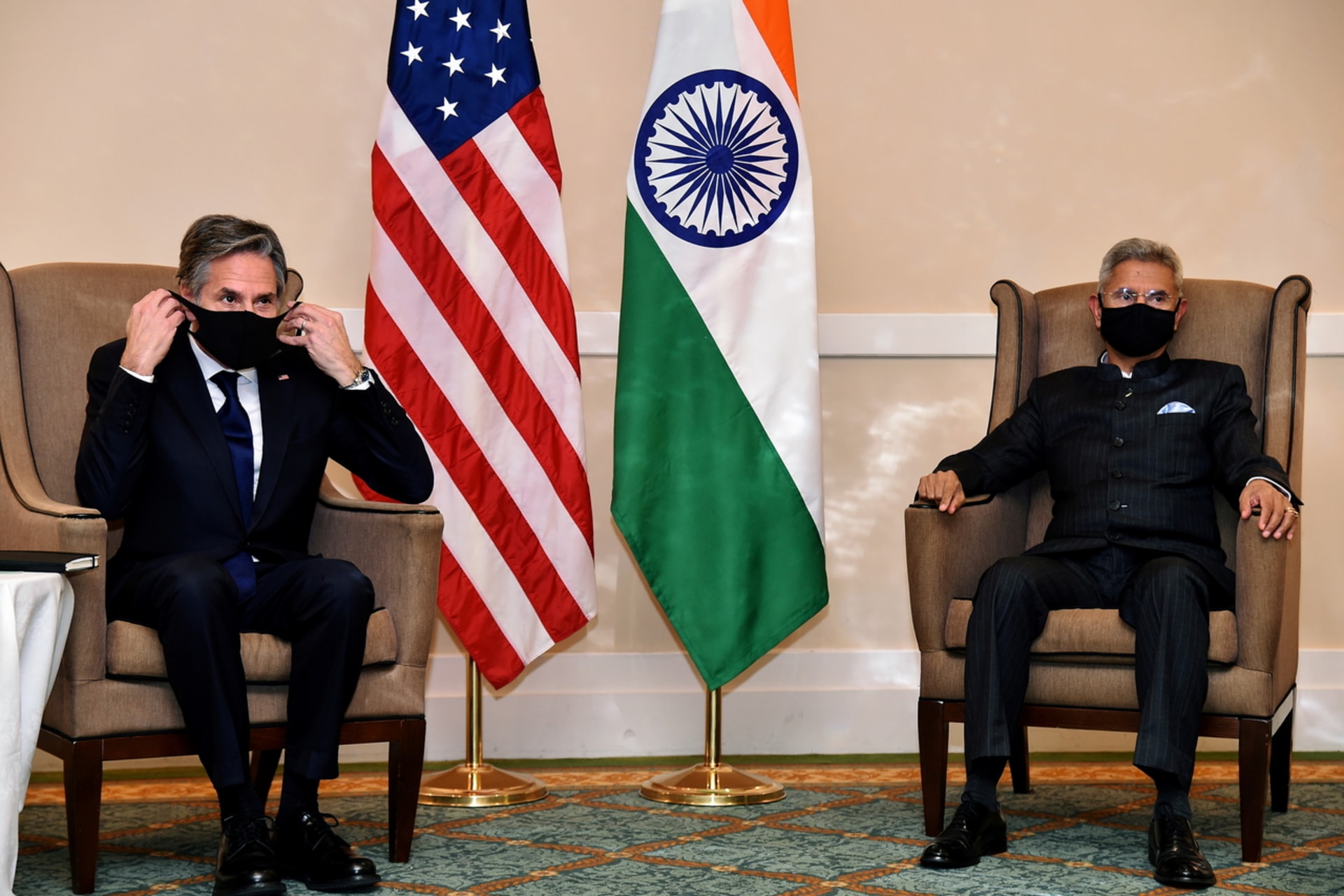Why the Ukraine War Likely Won’t Affect India-U.S. Ties
Originally published at The Hindustan Times

By experts and staff
- Published
Experts
![]() By Manjari Chatterjee MillerSenior Fellow for India, Pakistan, and South Asia
By Manjari Chatterjee MillerSenior Fellow for India, Pakistan, and South Asia
By
- Zoe JordanResearch Associate, India, Pakistan, and South Asia
India’s stance in the Russia-Ukraine war has prompted policymakers and analysts in Washington DC to question the depth of the United States (US)-India strategic partnership. As a member of Quad, India is central to the US’s Indo-Pacific vision, and its alignment with this vision is seen to be critical as Washington hones its China strategy. While many in Washington question whether the India-US partnership can withstand international pressure for India to take a stance against Russia’s assault on Ukraine, the relationship is far too robust today to undergo a complete reversal. The Ukraine crisis no doubt exposes a strategic mismatch between Washington and New Delhi’s security priorities, yet there remain existing and durable connections in other spheres that could buoy the bilateral relationship.
Our new Council on Foreign Relations (CFR) project “Women You Should Know in India” demonstrates how the breadth of the US-India partnership extends across numerous industries, and is advanced by bottom-up interests that can transcend security issues. The project encompasses, through bi-monthly interviews, a growing catalogue of senior-level women in India who identify and explain overlapping areas of US-India interest. Many areas for cooperation they discuss are those already identified in Washington as being high on the Biden administration’s agenda. For example, the climate crisis is central to a progressive vision of governance the White House and in the US Congress. As Bahar Dutt, a prominent conservationist and environmental journalist, highlights, US-India cooperation on the climate crisis has both historical roots and nascent potential, particularly in terms of solar energy — where India has already taken the lead on the International Solar Alliance (ISA) — and in air pollution. “India has extensive environment laws but lacks enforcement,” Dutt comments, and the United States’ experience in successfully managing urban pollution in the 1970s could offer regulatory guidance for India.
Developing and sharing technology will be critical for tackling environmental issues, as well as matching the comparative advantages of the Indian and US technology sectors. Debjani Ghosh, president of the National Association of Software and Service Companies (Nasscom), a trade association that represents India’s information technology (IT) and business process management (BPM) sectors, emphasises that the Indian IT industry already works closely with US government and academic institutions to promote technological development in areas such as the life sciences and health care. Ghosh finds that “the United States excels in cutting-edge R&D while India has the talent available to plug the gap between supply and demand in digital skills.”
Bilateral cooperation in the wake of Covid-19 further demonstrates the potential for coordinating Indian skills and markets with US funding. Roopa Kudva, managing director, Omidyar Network India, a philanthropic investment firm, explains that further progress can be made by channelling investment into firms from sectors of mutual priority. A large portion of India’s Covid-19 response was fuelled by the innovative breakthroughs of frontline NGOs, who collected data, designed apps, and devised technology-led solutions for testing and contact tracing. Without Indian and US investment, India’s Covid-19 recovery may have been hindered further due to an underdeveloped testing-and-tracing apparatus. In other spheres such as the education sector, India is already a primary global developer of technologies and also a leading recipient of American venture capital inflows — which total $4 billion since January 2020, according to Shaheen Mistri, CEO of Teach for India.
The scope of existing US-India cooperation in the environmental, technology, education, and business spheres is given further heft by security and defence issues that can guide the trajectory of the relationship. And although there seems to be a serious disconnect on Ukraine, continuing cooperation in other security areas is in both countries’ interests. China is not going away as India and the US’s respective largest threats. Russia’s increased alignment with China as a result of the Ukraine crisis only complicates New Delhi’s ability to rely on Moscow as it balances Beijing.
Raji Rajagopalan, director, Centre for Security, Strategy and Technology (CSST) at the Observer Research Foundation (ORF), argues that space governance will become central to the US-India bilateral relationship, driven by mutual concern about the People’s Liberation Army’s increasing space capabilities. Older concerns persist as well, she explains: “India’s war on terror preceded the global war on terror, and despite the US withdrawal from Afghanistan, or perhaps because of it, terrorism is an important priority for Indian policy analysts.”
Beyond Ukraine, these shared security priorities will continue to link Indian and US goals in the long-term. For policymakers and analysts in the US, knowing which issue areas are ripe for cooperation marks a first step, but knowing about the expert voices in India who can speak to these areas is the second. As we continue the project, we expect our interviewees to highlight further issues and interests that could impact the relationship in the years to come.
